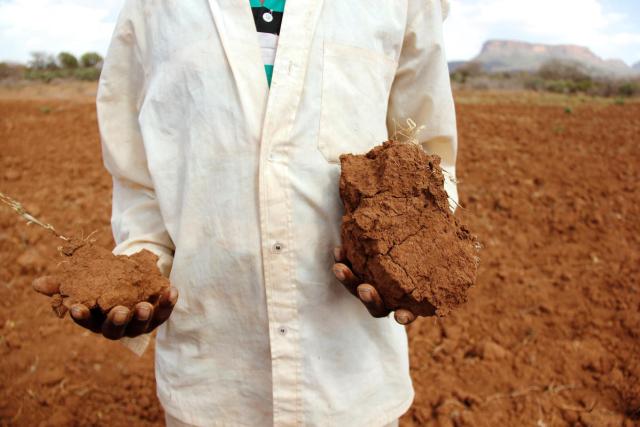Resource Recovery from Sanitation for Food Security and Soil Health

Our global food system has created a number of challenges at the nexus of agriculture, sanitation, and water quality. Many soils are in poor health; mined of nutrients from decades of farming, or lacking them to begin with. This is particularly true for sub-Saharan Africa where poor soils throughout the region are a driver of low yields and resultant undernutrition (SDG 2) and poverty (SDG 1). Yet the high costs of fertilizers (African farmers pay two to six times the global average for fertilizer) mean that African farmers can only apply 17 kg of fertilizer per hectare, relative to a global average of 135 kg.
One innovative solution to both these problems is to recapture nutrients lost as human “waste” and properly treat them for use in agroecological systems. In the context of sub-Saharan Africa, container-based sanitation offers many co-benefits. First, it is a modern way to provide sustainable sanitation systems to 319 million people currently lacking it (SDG 6), with the potential to be deployed both in cities and rural areas. Secondly, it offers a new growth sector for the economy, with waste collection and treatment potentially employing a large number of people (SDG 8), while supplying a more affordable, locally produced source of greatly needed fertilizer. In addition to fertilizer, waste-to-value chains can produce other outputs, such as energy and insects for animal feed.
This Sustainable Development Solutions Network (SDSN) online conference aims to:
- Assess the opportunities (including quantitative resource assessment) and obstacles (including negative perceptions) to implementing waste-to-value chains for organic matter recycling.
- Take stock of what we have learned so far. When returning human wastes to soils, what works and what does not, and under what conditions?
- Share and discuss this knowledge with practitioners in the field (e.g. farmers, NGOs, and policymakers).
- Turn the evidence base into concrete recommendations to implement effective interventions.
Register now to join this free online conference. Registering allows you to participate in the daily live sessions with our experts. These live sessions (90 minutes) will begin with an introductory talk on the subject (15 minutes) followed by insights, questions, and comments from a panel of 3-5 discussants.
Register